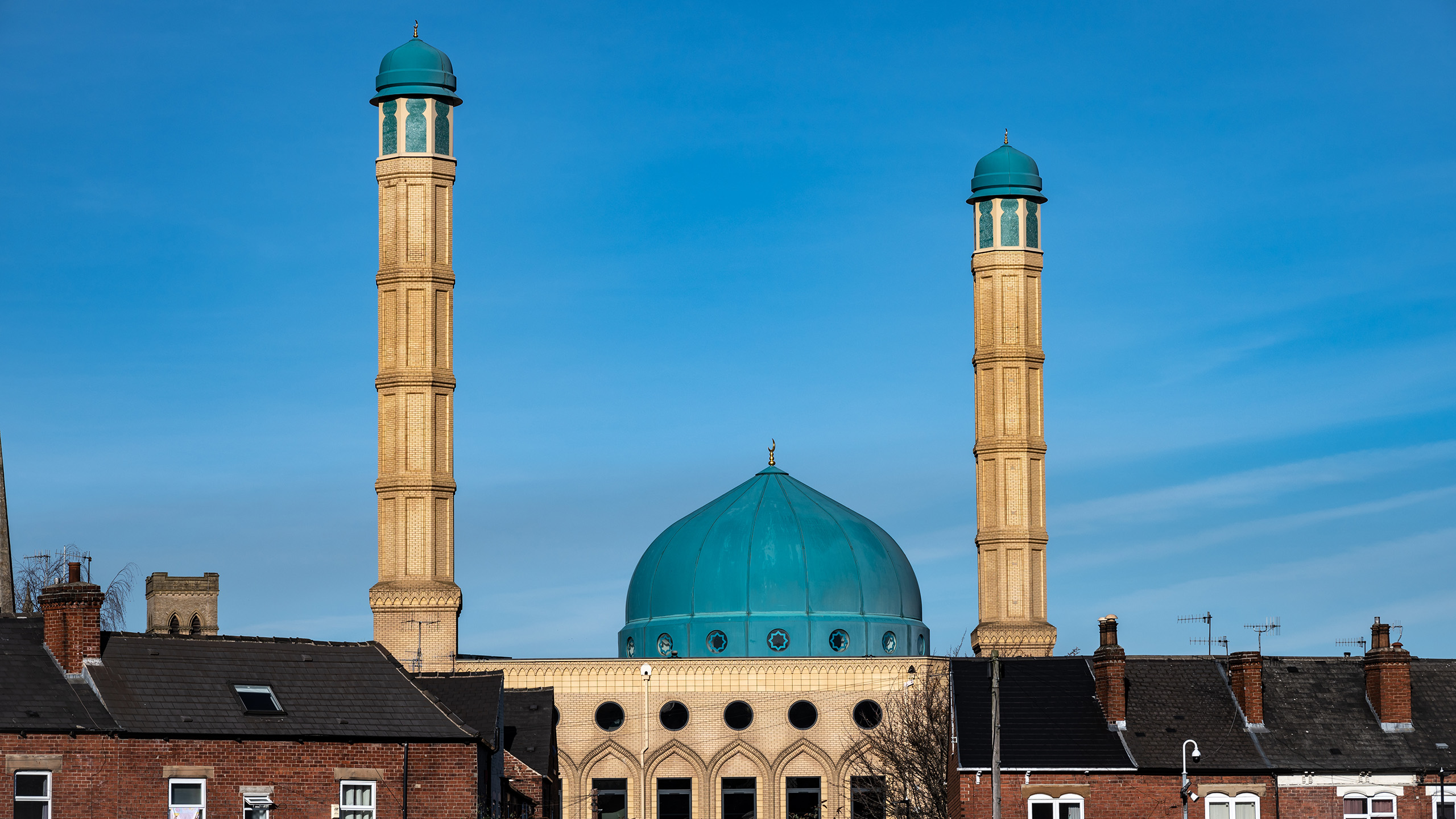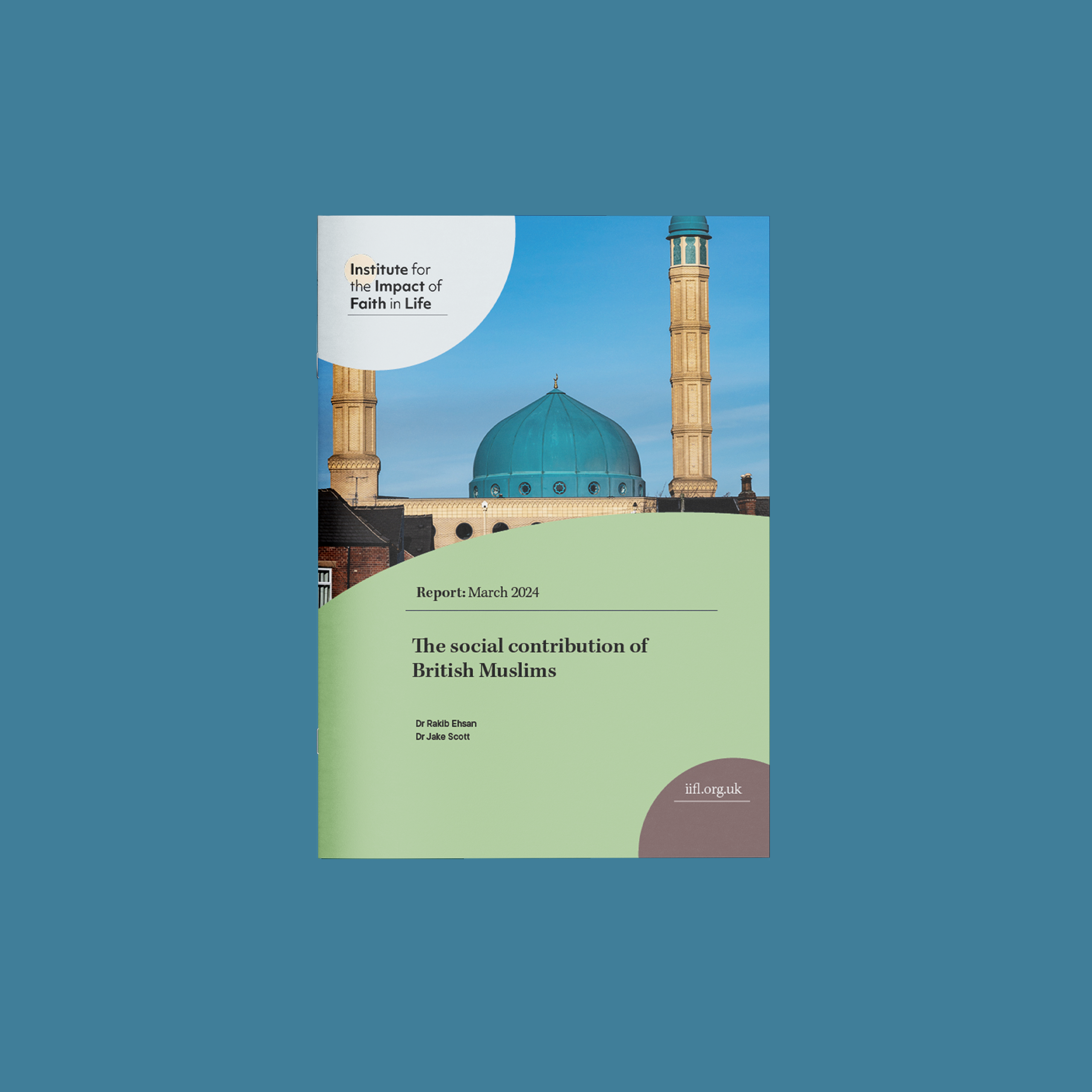Community
- Over half of British Muslim respondents (51%) reported having a strong sense of belonging in their local community and neighbourhood. This drops to 35% – 16 percentage points – for respondents in the wider general population survey.
- Around one in five British Muslim respondents (19%) reported that they participated in unpaid volunteering work in the local community at some point during the twelve months leading up to being surveyed. This is near-identical to the wider general population (which is at the marginally higher figure of 20%).
- Most British Muslim respondents believe that more should be done to improve relations between Britain’s different faith communities (71%). A total of 22% believe that the right amount is already being done, with only 1% saying that less should be done on this front.
Charitable activities and civic behaviours
- Three in four British Muslim respondents reported giving a charitable donation at some point during the twelve months leading up to the survey (75%). This figure drops to 68% for the wider general population sample.
- More than half of British Muslim respondents reported gifting money to a friend (with no desire for or expectation of repayment) at some point during the twelve months leading up to the survey (51%). This drops by 21 percentage points to 30% for the wider general population sample.
- Nearly two in three British Muslim respondents reported sharing homemade food with someone who is not a family member at some point during the twelve months leading up to the survey (64%). This figure drops by 25 percentage points for respondents in the wider general population survey (39%).
Opportunities in modern Britain
- In the British Muslim survey, 86% of respondents believed that Britain is a good place to live when it comes to people having the opportunities to progress and thrive in life (with 3% saying that it is a bad place to live on this front). In the wider general population survey, 70% of respondents believed that Britain is a good place to live (with 12% saying that it is a bad place to live in this context).
- More than four in five British Muslim respondents (83%) agreed with the view that, when compared to other European countries such as France, Germany, and the Netherlands, the UK is a better place for Muslims to be able to practise their faith whilst being involved in wider public life. This rises further to 87% for Muslims living in the Greater London area.
Building on the polling data derived from the surveys conducted by TechneUK, a total of 28 semi-structured interviews were held with a set of British Muslim participants. This group was chosen to be diverse in terms of ethnicity, denomination, occupational background, and place of residence. Whitestone Insight assisted the IIFL with the recruitment of British Muslim participants for this element of the study.
This report also contains a total of ten case studies of British Muslim organisations:
- The UK Muslim Scout Fellowship
- Al-Manaar (The Muslim Cultural Heritage Centre)
- Project Rise
- Oxford Centre for Islamic Studies (OXCIS)
- Hamara Healthy Living Centre
- Islamic Relief
- Muslim Hands
- Aishah Help
- Tell MAMA (Measuring Anti-Muslim Attacks)
- Muslims Against Antisemitism (MAAS)
Dr Rakib Ehsan
Dr Rakib Ehsan is a British-Bangladeshi academic specialising in matters of cohesion, identity and immigration, his PhD thesis investigated the effects of social integration for Britain’s non-white minorities.
Dr Jake Scott
Dr Jake Scott is the secretary at the IIFL. An English Christian academic, his PhD thesis was written on populism, popular identity and political theory. He is particularly interested in the social impact of religion and faith.


